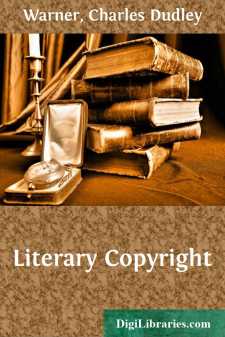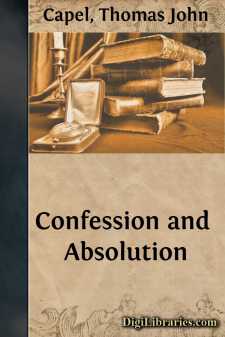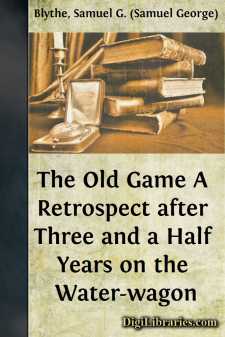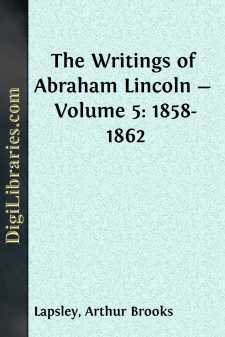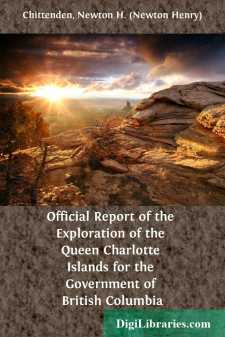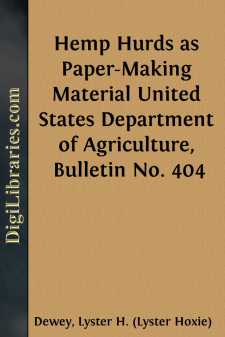Non-Classifiable
- Non-Classifiable 1768
Non-Classifiable Books
Sort by:
This is the first public meeting of the National Institute of Arts and Letters. The original members were selected by an invitation from the American Social Science Association, which acted under the power of its charter from the Congress of the United States. The members thus selected, who joined the Social Science Association, were given the alternative of organizing as an independent institute or as...
more...
For a commercial boat to gain widespread popularity and use, it must be suited to a variety of weather and water conditions and must have some very marked economic advantages over any other boats that might be used in the same occupation. Although there were more than 200 distinct types of small sailing craft employed in North American fisheries and in along-shore occupations during the last 60 years...
more...
I. The necessity of repentance as the essential condition for the sinner obtaining God's forgiveness is plainly taught both in the Jewish and Christian dispensations. Prophets and penitents throughout the Old Testament bear evidence to this truth. The words of the Psalms of David, the exhortations of Jeremias and Isaias to the people of God to be converted, have become household words in our books...
more...
I: Introductory In a few minutes it will be three years and a half since I have taken a drink. In six years, six months, and a few minutes it will be ten years. Then I shall begin to feel I have some standing among the chaps who have quit. Three years and a half seems quite a period of abstinence to me, but I am constantly running across men who have been on the wagon for five and ten and twelve and...
more...
SPEECH AT CLINTON, ILLINOIS, SEPTEMBER 8, 1858. The questions are sometimes asked "What is all this fuss that is being made about negroes? What does it amount to? And where will it end?" These questions imply that those who ask them consider the slavery question a very insignificant matter they think that it amounts to little or nothing and that those who agitate it are extremely foolish. Now...
more...
Geographical Position and Extent. The Queen Charlotte Islands, the extreme north-western lands of British Columbia, lie in the Pacific Ocean, between fifty-one and fifty-five degrees of north latitude. They comprise over 150 islands, and islets, their length being 156 miles, and greatest width fifty-two miles. Provost, Moresby Graham and North Islands, extending north-westerly in the order mentioned,...
more...
From Fitzgerald's exquisite version of the Rubáiyát of Omar Khayyám, I take the following quatrains which may serve as a text for what I have to say: So when the angel of the darker DrinkAt last shall find you by the river-brink,And offering you his cup, invite your SoulForth to your lips to quaff, you shall not shrink. Why, if the soul can fling the Dust aside,And naked on the air of Heaven...
more...
by:
Oliver Optic
PREFACE. This work, as its title indicates, is intended for the use of Advanced Classes,—for scholars who are, to some extent, familiar with the principles of pronunciation and syllabication. It is not intended to supersede the ordinary Spelling-Book, but rather to follow it, as a practical application of the pupil's knowledge, not only in spelling, but in dividing and pronouncing the more...
more...
by:
John Henry Fow
INTRODUCTION I was induced to make this research by the late William H. Egle, Librarian of the State Library at Harrisburg, whose knowledge of the early history of Pennsylvania was of valuable assistance to me in preparing the data for a history of the country along the Delaware river prior to 1682 (yet unfinished). Mr. Egle agreed with me that the claim of Mr. Canby that Betsy Ross designed and made...
more...
THE PRODUCTION AND HANDLING OF HEMP HURDS. By Lyster H. Dewey, Botanist in Charge of Fiber-Plant Investigations. WHAT HEMP HURDS ARE. The woody inner portion of the hemp stalk, broken into pieces and separated from the fiber in the processes of breaking and scutching, is called hemp hurds. These hurds correspond to shives in flax, but are much coarser and are usually softer in texture. -2- The hemp...
more...


